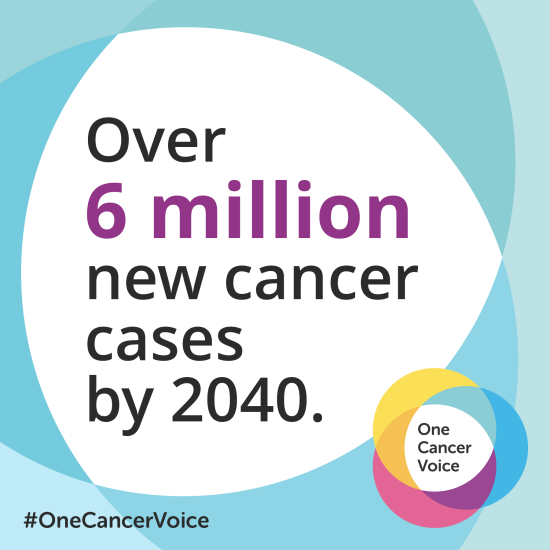27th August 2025 by Clare Cox

New analysis shows that by 2040, around 6.3 million new cancer cases are expected across England.
In the 1970s, someone was diagnosed with cancer every four minutes. By 2040, it’s projected to be every two minutes – around 1,110 people a day.
Despite progress in survival – which has doubled since the 1970s, the rising number of cases threatens to add additional demands on an already overstretched NHS. Without decisive action, England risks falling behind comparable countries in cancer outcomes.
With a National Cancer Plan for England expected later this year, the One Cancer Voice coalition has outlined six essential tests the plan must meet to take England from world lagging to world leading on tackling cancer:
The charities are also clear that the plan needs to be fully funded. Without this, the tests cannot be met.
Make 2nds Count Chief Executive Samantha Dixon, said:
"Make 2nds Count is proud to stand beside so many other cancer charities calling for a bold and ambitious cancer plan in England. It is unacceptable that, by 2040, a person will be diagnosed with cancer every two minutes, including women and men with secondary breast cancer. We support the six essential tests One Cancer Voice are asking for in the Cancer plan, particularly access to new, often life-extending or life-improving drugs more quickly as well - as reducing barriers to accessing clinical trials. We ask the government to seize this once-in-a lifetime opportunity to put the country, and its citizens at the fore of great cancer prevention, treatment and care."
Cancer Research UK’s Chief Executive and One Cancer Voice representative, Michelle Mitchell, said:
“Nearly one in two of us will be diagnosed with cancer in our lifetime - everyone will be impacted by the disease, whether they receive a diagnosis themselves, or have a friend, family member or loved one who does.
“The National Cancer Plan for England could be a defining moment. If the UK Government delivers an ambitious fully funded strategy, we could save more lives and transform cancer outcomes in England, propelling our country from world lagging to world leading when it comes to tackling this disease.
“Meeting these six tests will show how serious the UK Government is about improving cancer outcomes. We’ve seen progress before – now is the time to act again and make a difference for cancer patients.
One Cancer Voice is calling for public awareness campaigns to boost symptom awareness, support for GPs to aid earlier diagnosis, and improvements to screening programmes.
Former National Cancer Director at the Department of Health and Chair of the National Screening Committee, Professor Sir Mike Richards, said:
“Our previous NHS Cancer Plan was instrumental in improving cancer outcomes, and this one gives us a huge opportunity to make England one of the best countries in the world for cancer survival.
“But to make this happen it’s essential that the plan has consistent funding, so that the changes we know will save lives from cancer are able to be introduced. This will save money in the long term and ensure a better future for generations to come.”